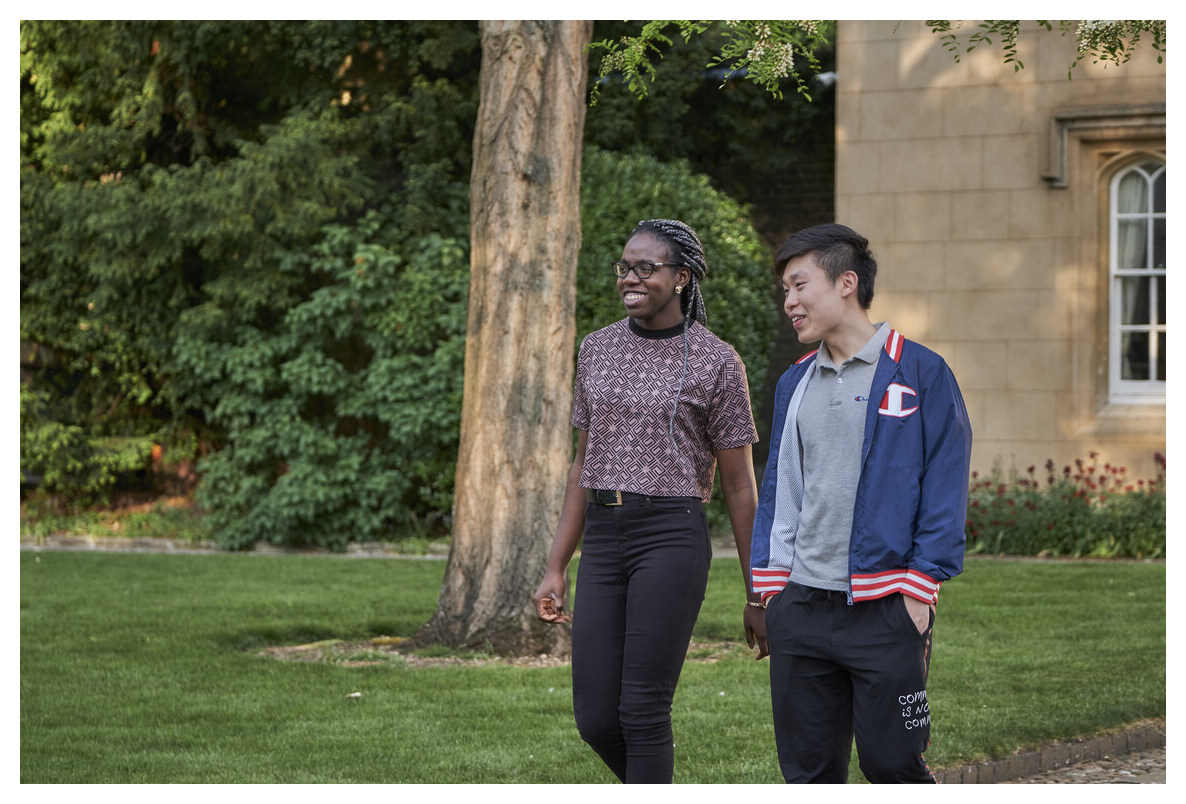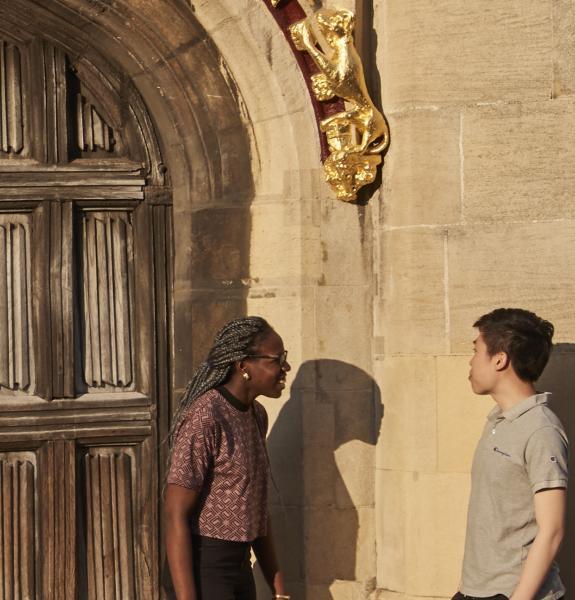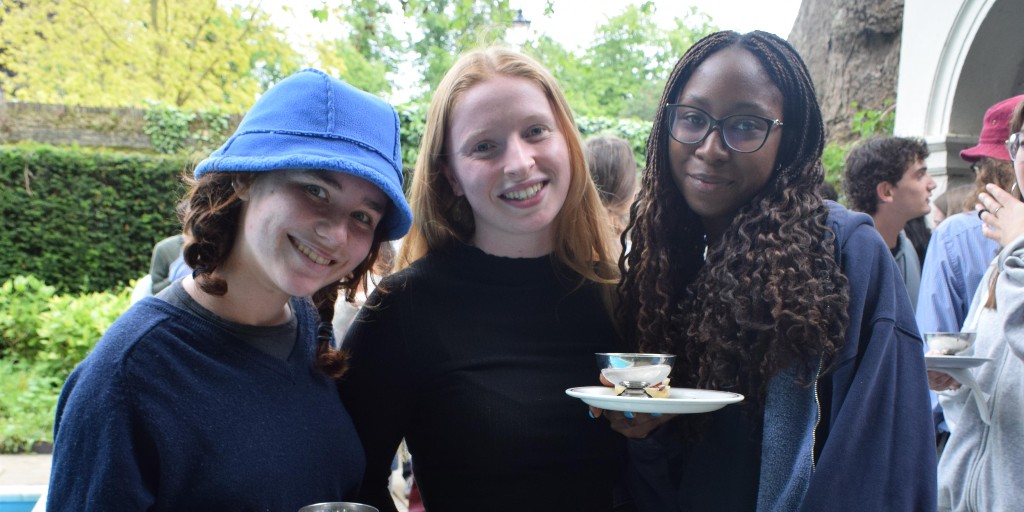 At Christ's College you have the chance to study law in a rigorous, collaborative way. One of our strengths is that our staff offer expertise in many of the qualifying compulsory papers. We have a diverse student body from around the world and an extensive network of distinguished alumni.
At Christ's College you have the chance to study law in a rigorous, collaborative way. One of our strengths is that our staff offer expertise in many of the qualifying compulsory papers. We have a diverse student body from around the world and an extensive network of distinguished alumni.
Since Christ’s beginnings our students have thrived in the law, starting with Thomas Gent, appointed a judge in 1584. One graduate, Lord Alexander Irvine of Lairg (Honorary Fellow, 1996), achieved historical and constitutional significance as the last Lord Chancellor to sit as a judge in the House of Lords.
Other notable alumni include Sir Martin Moore-Bick (Honorary Fellow, 2009), a serving judge in the Court of Appeal and barrister Nicholas Fuller, imprisoned for challenging Church courts’ punishment of people with different religious views. Some have written key legal works, including Henry Finch (Nomotechnia), Lord Patrick Devlin (on the boundary between law and morals) and Basil Montagu, one-time friend of Wordsworth.
The College is usually home to a friendly community of 20-25 law students who make frequent use of our well-stocked library. The active student-run law society has strong links to the legal profession and invites solicitors, barristers and others to give talks throughout the year. It organises all kinds of events including a party for new undergraduates, informal and formal dinners, plus a summer garden party.
After graduating many of Christ's lawyers go on to work in the legal profession as solicitors and barristers, as well as in areas such as accountancy and academia.
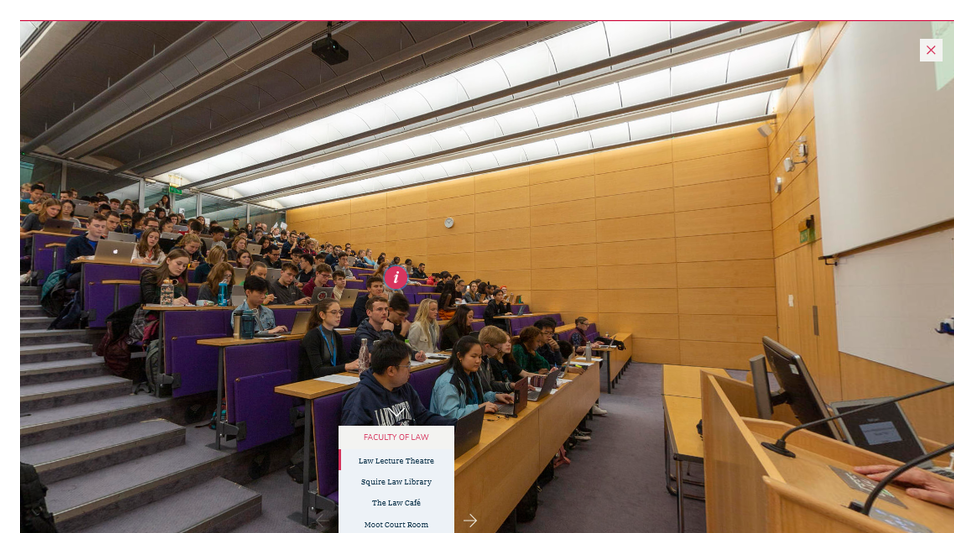
department in the Virtual Tour
The Law course (or ‘tripos’) is normally a 3-year degree, although there is an opportunity for current students to apply for an additional year between the first two years and the final year in order to study abroad under the Erasmus+ scheme.
Please visit the University website for full details of the undergraduate Law course content and structure, including the course film. You will also find information on the BA Law course page. If you have further questions about course content, please contact outreach@law.cam.ac.uk.
| Exploring Law: Studying Law at University Free Online Course by Cambridge University Faculty of Law to help you decide whether Law is right for you. |
The Faculty of Law, internationally renowned Squire Law Library and Institute of Criminology are just 15 minutes’ walk from the College.
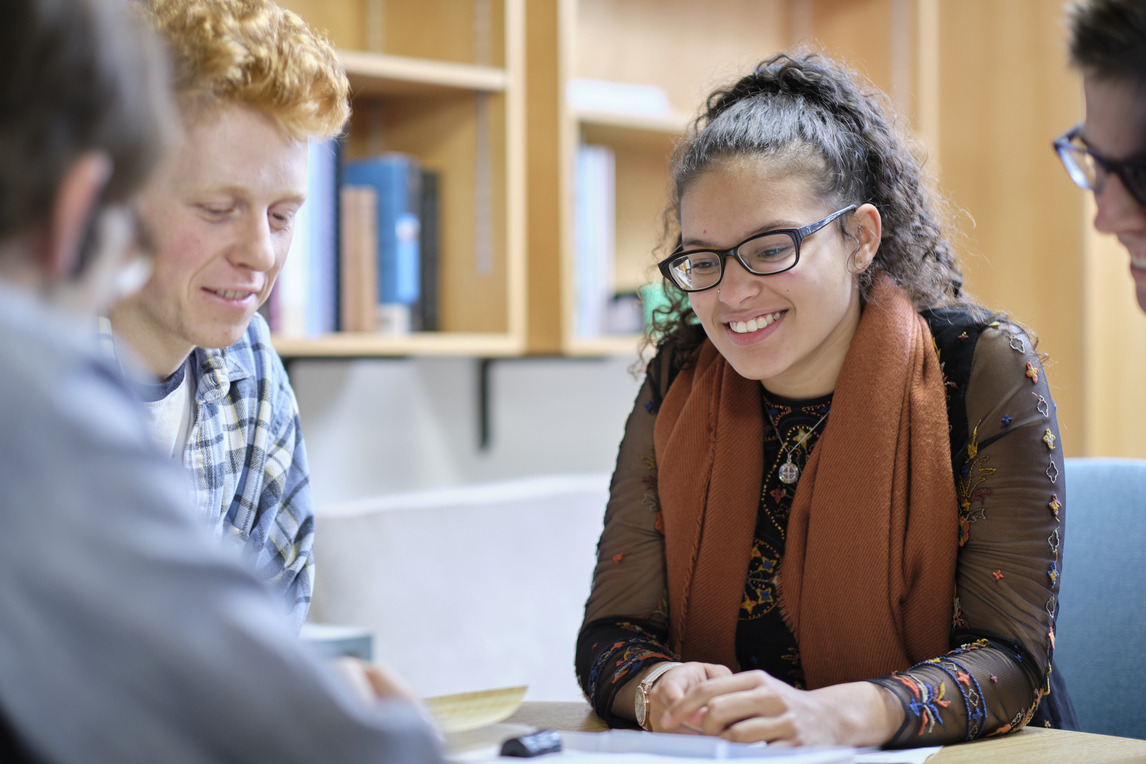
You have lectures at the central Faculty of Law and are also taught in College in weekly one-to-one or small-group 'supervisions’. These tutorial sessions give you the advantage of personally-tailored guidance and tuition. Christ’s Director of Studies for Law Dr Giordana Campagna organises your supervisions and can advise on your choice of subjects.
Other academics in Law:
All our law students are welcome to take part in moots. (In fact, first-years can’t miss the College moot in Michaelmas Term.) At these simulated court cases, you make submissions about how the law should apply to a set of facts, acting as barristers in front of a ‘judge’ – usually a Director of Studies, or a former Christ’s student who is now a real judge.
Moots raise questions of law rather than fact, so there’s no need to cross-examine any witnesses. You learn to hone skills such as public speaking, legal research and thinking on your feet. Not to brag, but Christ's undergraduates have had a pretty successful record in recent years!
Read about the experiences of Christ's Law students Ayomide, Eri, Page, Emily, and Emma.
To hear from other students at Christ's, please watch the Christ's student Q&A film, and visit our Student Profiles page (you can look at the profiles by subject or by country / region that the students are from).
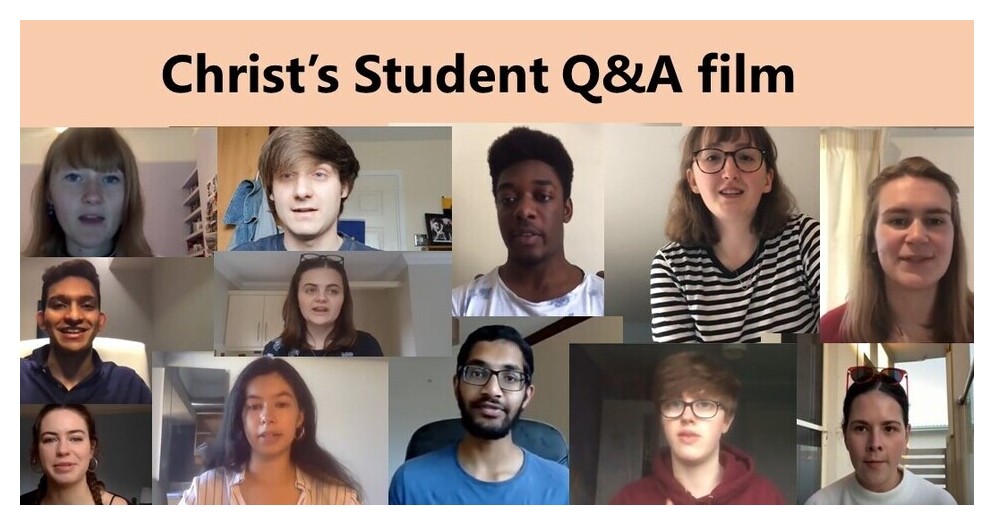
I didn't know how great the location was until I arrived - Christ's being a central college means that everything is near and there is a direct route to pretty much every part of Cambridge. This has made life so much easier, and I haven't had a single bad experience with any student from Christ's.
How to apply
Visit How to Apply for full details and a timeline of the application process. We welcome applicants from all backgrounds and school types, all over the world. If you're applying from outside the UK, please read our international students section.
All applicants for Law must register for the LNAT between 1 Aug and 15 Sept (see the LNAT section below for details).
If you are considering an application in October 2025 for October 2026 (or deferred Oct 26) entry, we recommend that you sign up for the next College Open Day.
Applicants for Law at Christ's are not asked to upload school essays as part of the application process.
We admit students taking three A-levels, the International Baccalaureate, Scottish Advanced Highers and a range of equivalent qualifications. Applicants for Law will generally have studied an essay-based subject as one of their post-16 subjects but there is no ‘ideal’ combination of subjects and we are happy for students not doing an essay subject to apply. Successful applicants take all sorts of subjects from Mathematics and sciences, to arts and social sciences or various combinations. All of these teach skills that can be useful to the undergraduate lawyer.
If you would like suggestions or to find out more about subjects that Law students commonly take, please see the entry requirements tab in the undergraduate Law course information. Please note that we do not accept Level 3 Criminology qualifications in place of an A level or equivalent.
We encourage students to attend one of our regular Subject Matters webinars for help with choosing Post-16 subjects for competitive university applications. This webinar is pitched for students aged 14-16 though it is also possible to attend when you have started sixth form.
Applicants to the University of Cambridge for Law must sit the LNAT at an LNAT test centre. There are more than 150 LNAT test centres around the world. The LNAT examines your academic abilities, knowledge-base and potential, and forms part of our holistic admissions process: there is no set score that we are looking for. When applying, it is important to be aware of the registration and test dates, which are normally earlier than the dates for other tests.
| Registration opens: 1 August 2025 (you will need your UCAS Personal ID number) Registration deadline: 15 September 2025 LNAT 2025 Test dates: 1 September - 15 October 2025 LNAT Bursary: It could take a week to process so bursary application by the end of Sept is advised. Exam access requirements: Check info for procedure. (dates as confirmed on the LNAT website) |
Information about the LNAT including example papers is available on the University Admissions website from March each year, and there is also an LNAT website if you would like to have an initial look. Details of costs for 2025 applicants are on the LNAT website.
If we invite you for interviews, these usually take place in early December. At Christ's we continue do all of our interviews online, as we have done for the last four years. You can have your interviews either at home (most applicants do this) or at school (if easier). Those invited for interviews are normally interviewed for 35-50 minutes in total. At Christ’s, we usually split the time into two interviews with academics in Law. Just before one of these, we give you a piece of legal text to prepare for discussion in the upcoming interview.
We don’t expect you to do any special preparation or have particular knowledge of the law. Our aim is to explore your aptitude and potential for legal reasoning and study at Cambridge, rather than assess what you already know.
Further, more general information about interviews (including two useful films) is available in the Cambridge interviews section, and it's worth also having a look at supervisions (short film here), as interviews are similar to what you do every week as a Cambridge student.
At Christ's we don’t have fixed quotas for places, so the number of students we admit in any year depends on the strengths of the applicants. In Law we aim to admit 6 to 8 students each year.
We assess the terms of each offer individually but our typical minimum conditional offer is:
> A*AA at A-level
> 42 points overall in the International Baccalaureate with 7,7,6 in relevant Higher Level subjects
> A1, A2, A2 in three Scottish Advanced Highers.
You need to be academically ambitious: the majority of Christ's students arrive with higher grades than are required.
If you’re taking another qualification, we expect you to be working at or close to the top of the mark range i.e.
> Baccalauréat français international (BFI): at least 17/20 overall, with 17 or 18 in relevant subjects
> European Baccalaureate: at least 85% overall, with 9/10 in relevant subjects
You can look up other qualifications in the offer levels for other exam systems and international entry requirements, and if you are applying from outside the UK please read the Christ's international students section for further information and check the country pages.
If you will have finished school when you apply, please also read about post-qualification applications, taking a gap year, and, if relevant, applying from a university.
| Think Cambridge Law (blog) | A really helpful set of posts from the Faculty of Law at Cambridge |
| Cambridge University Exploring Law course | A FREE six-week online course for 16-18 year olds developed by Cambridge University Faculty of Law to help you find out if studying Law is right for you. |
| Websites for exploring your subject in Law (I) | Suggestions from the Law Faculty |
| Websites for exploring your subject in Law (II) | Suggestions from the Law Faculty |
| LNAT website | See how to prepare and sample essays and practice test. |
| Reading suggestions | Book recommendations from Cambridge Law students |
| Gresham College Law lectures | Free online lectures including, for example, lecture series on the Practice of Law, The Politics of the Courtroom and Death, the State and Human Rights, as well as the Gray's Inn Readings. |
| Public Law for everyone | Blog exploring public law ideas, by Cambridge Law Professor Mark Elliott |
| Law Open Day resources | Scroll down to find the open day transcripts and Faculty virtual tour |
| Cambridge University Law Society Speakers Faculty of Law public lectures Law in Focus | Short talks and online lectures |
| The Modern Judiciary: Who they are, what they do and why it matters | Future Learn course introducing you to the role of judges in the legal system of England and Wales |
| Supreme Court website | Including information about the court and online films, You may also want to consider visiting a local court. |
| Cambridge Sixth Form Law Conference | For Year 12 students interested in studying Law at degree level |
| Information about Work Experience for Law | Information and advice |
| Supercurriculars in a pandemic | Lots of good suggestions here |
| HE+ Law | Website for secondary school students who would like to explore Law. |
| CamGuides | Introducing the academic and information skills that you will need during your studies, as well as how and where you would be working |
The university provides some introductory resources, but you are advised not to research/teach yourself the law itself - often researching select issues of the law in advance restricts prospective students who cling on to it in an interview rather than thinking on their feet to answer the direct question asked by the interviewers.
Attend an Open Day / Event
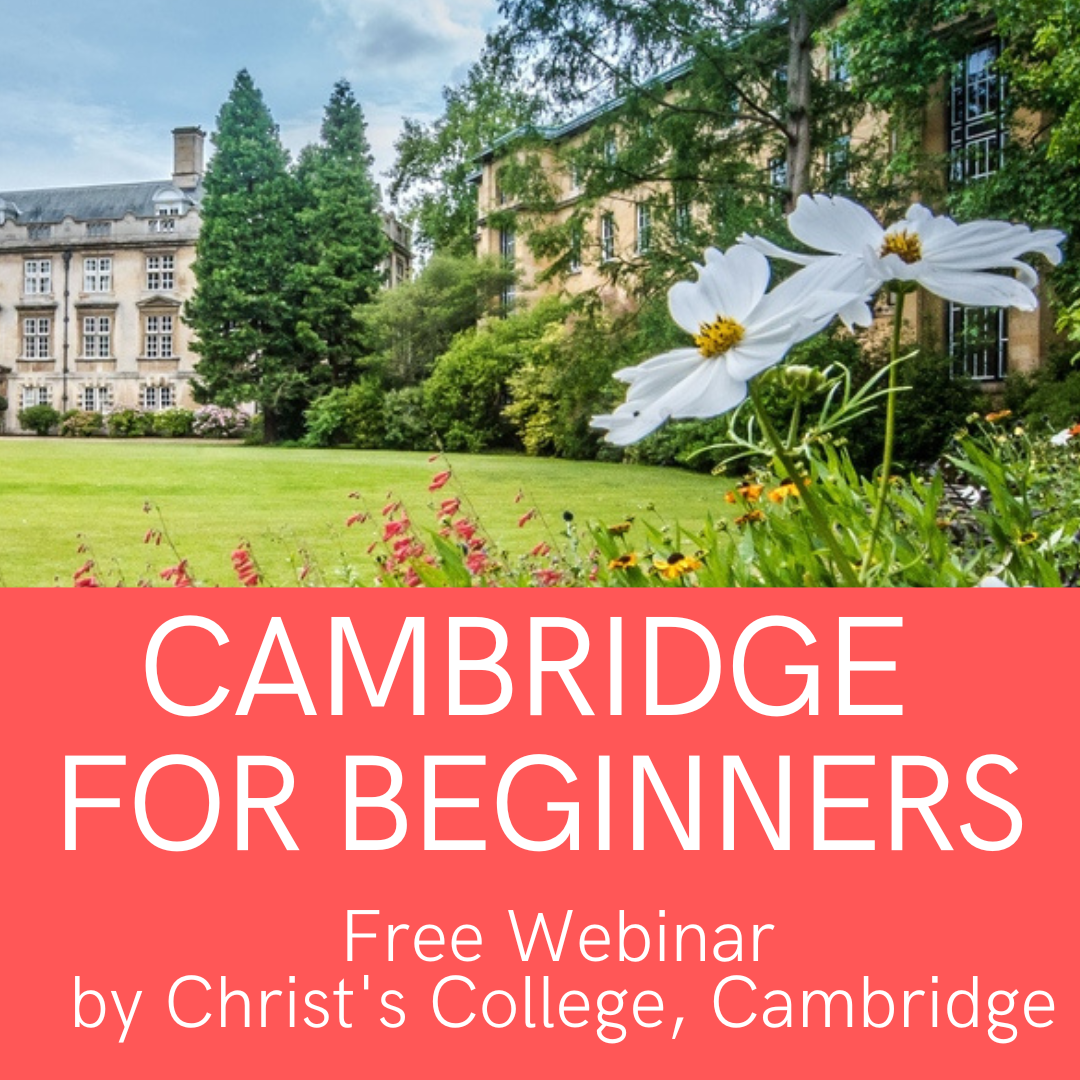
Our open days and events page advertises regular online opportunities as well as events you can attend in Cambridge. Between February and August we run regular webinars:
> Subject Matters: The importance of post-16 subject choices
> Cambridge for Beginners
> Understanding Student Finance
> Personal Statements and preparing for an application
> Webinars for applicants outside the UK
For Law, see in particular
> College Open Days
> Exploring Law Conference in March/April
> Christ's Online Subject Meetings in May
> Cambridge SU Shadowing Scheme (eligibility criteria apply)
> Experience Christ's Summer School (eligibility criteria apply)
> Sutton Trust Summer School (eligibility criteria apply)
For more detail of what the course involves, read about Undergraduate Law admissions on the University website and take a look at the BA Law degree site.
And if you have any other questions, please send them to us at admissions@christs.cam.ac.uk. We look forward to hearing from you.
